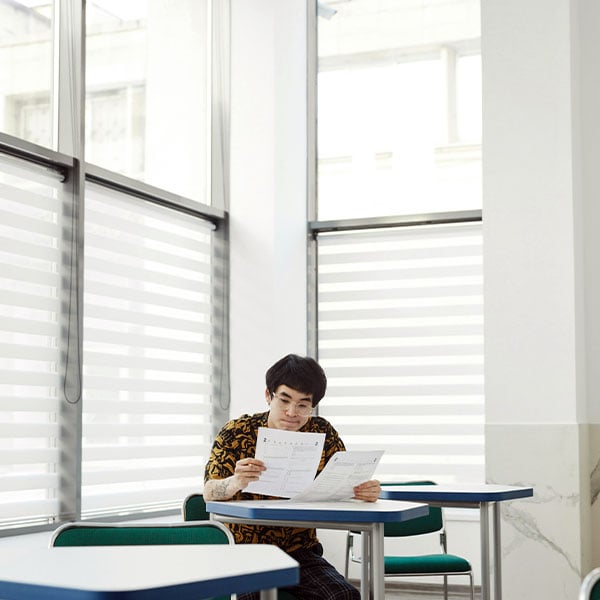Since Covid-19 hit the UK, the way we educate students has had to change significantly. Online teaching and remote learning have gone from being abstract concepts to the very real reality we face daily.
As we look towards schools returning face to face later this year, and hopefully for good, the question now is: how can we take the lessons we’ve learnt from this time, and use them in our practice when we return to school?
1. High Expectations
We’ve always known the power of high expectations. There is an old adage that says “no-one rises to low expectations”, and this is certainly true in education. During remote learning, what we permit, we promote. If we subtly endorse a culture of low expectations, be it in terms of attendance, contribution to the discussion or promptness of returning work, then these are the behaviours that students will regress to.
So, when schools return, it will be particularly important for teachers to reinforce high expectations of their students, alongside providing the support to help students get back into the swing of things. It is to be expected that they will struggle to adapt initially, and although we must have the flexibility and empathy to support them, we must always set the bar high in terms of what we think they can achieve. Students will follow this lead and this should help to set new routines, whereby students can build back up their resilience and create new, positive learning habits.
2. The Use of Questions
Questions have great power in helping students learn and ingrain their learning into long-term memory. They help focus attention, tap into natural curiosity, check for understanding and accelerate learning. Here are the types of questions we’ve used heavily during remote learning that will continue to be part of our practice when schools return...
Retrieval Practice
This is all about generating answers to questions. It can include quizzes, answering spoken questions, practice papers and testing yourself. Retrieval practice is one of the best ways to help students consolidate their learning, because it requires them to recall previously learnt knowledge. This strengthens memory traces and increases the likelihood the information will be transferred to long-term memory.
Pre-questioning
This involves asking students questions before they learn the relevant information. A recent study found that students who had been asked pre-questions not only learnt more about those topics, but remembered the rest of the lesson better as well. This effect is thought to have occurred because such questioning focuses students and creates a sense of intrigue surrounding the information they’re about to learn. This makes for a very effective lesson starter.
Elaborative Interrogation
Elaborative Interrogation is one type of retrieval practice. This takes place after students learn new information, and involves them having to come up with explanations for this new information through asking ‘why’ and ‘how’ questions. For example, “why does this happen?” or “why is this true for X but not y?”. This helps students consolidate their learning because it forces them to think deeply about the information, rather than simply reading or hearing it, and passively taking it in.
Wait times
With any questions asked in class, it can be hard for teachers to gauge how long to wait before asking for an answer. It’s a tricky thing to judge because some students will come up with an answer very quickly, while others will take much longer to think about it.
Online teaching has made this even harder. There’s a greater pressure to make sure the lesson isn’t boring and to keep students engaged. And on screen, it can be much harder to tell when students have got to an answer. It takes great confidence to pause and leave the right amount of time needed. This can mean the temptation to rush this process. So, when we return to school, it will be especially important to take care in judging wait times, to give all students a chance to reach their answers, while keeping the lesson engaging.
3. the Importance of the teacher-student relationship
Since virtual barriers have been imposed between students and their teachers, we’ve realised the importance of strong teacher-student relationships even more than before. For example, teachers have had to work even harder to show students they care.
When we return to school, it will be important to remember that although it will be easier to maintain these relationships face to face, we still need to put in the effort. And it will be important to re-build those relationships after being at a distance for such a long time.
Why is the case? Because positive teacher-student relationships improve peer relationships, enhance student sense of belonging, boosts their career aspirations, improves student engagement, and enhances both teacher and student well-being. Being available to students, reaching out to them, checking in, and being sure to look out for them should help with this, particularly in those first few weeks and months back at school.
FINAL THOUGHTS
We’re sure that many teachers, educators and students themselves will be excited, relieved, joyful, and have many other positive feelings about returning to school. However, there also may be a little apprehension and uncertainty surrounding this. But, through the journey of the pandemic, it’s fair to say that education has learnt a lot.
So, we can use this new knowledge to enable schools to hit the ground running when they reopen, to help everyone transition back smoothly. We hope you agree about the value of these lessons we’ve learned through the Covid crisis, and that you find these tips helpful when going back to school.







